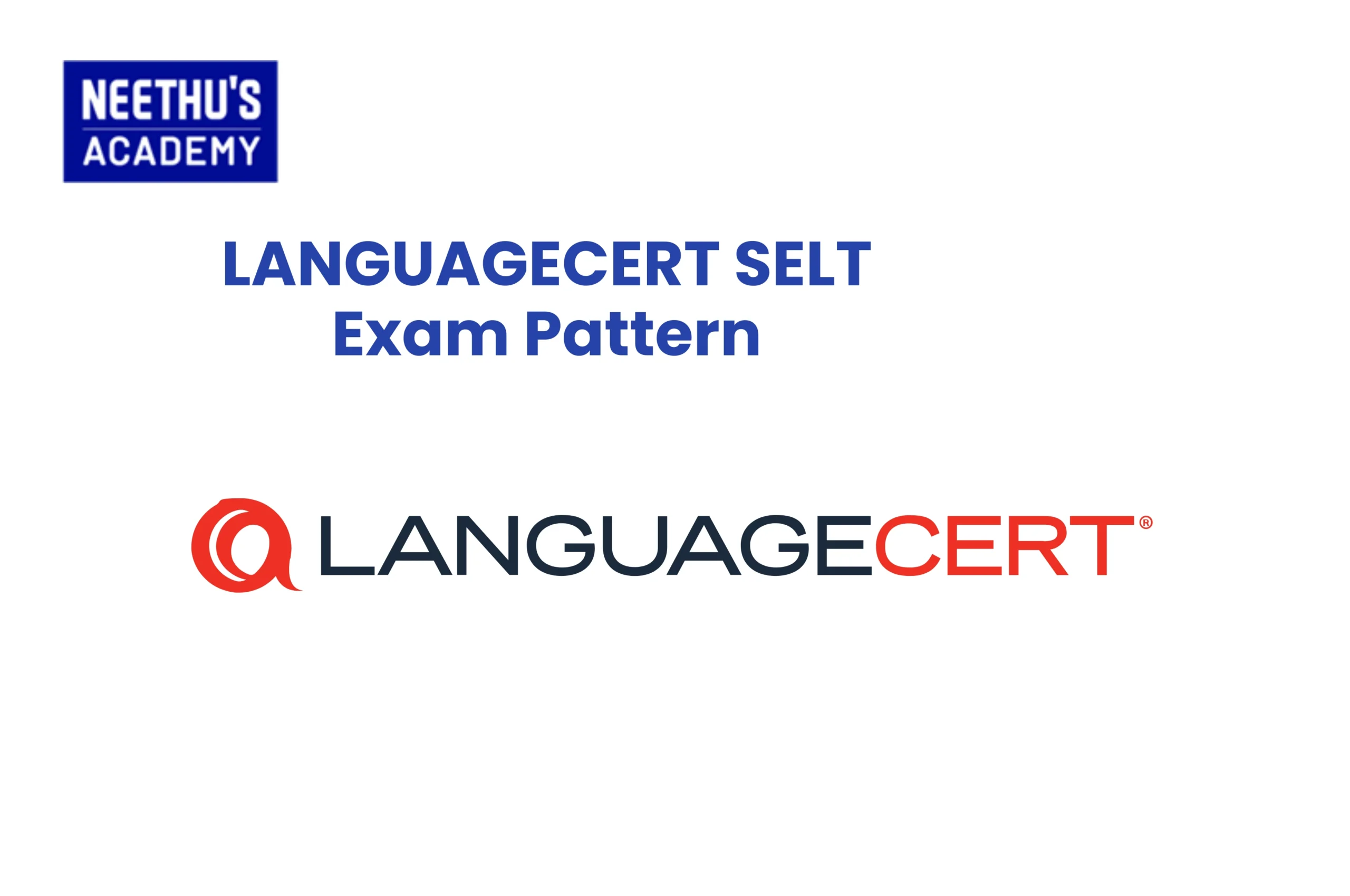Imagine you are running out of time and still have questions to complete! That would be the worst-case scenario while taking a…

How to Learn German Vocabulary Faster: Top Apps, Flashcards, and Tips
Learning German vocabulary is part and parcel of learning the German language, whether you have planned a tour to Germany, think about further education, or improve your prospects in your career. The guide below gives some of the best tools and techniques that may help learn German vocabulary using applications and flashcards along with books and professional advice.
Why Learning German Vocabulary is Key to Mastering the Language
Vocabulary is the skeleton of any language and German is not an exception. When one masters how to write out the basic words of the German language, then that person is forging the foundation for successful speaking, listening, reading, and writing. To begin with, a good vocabulary foundation allows you to form simple sentences, be understood, as well as understand other people. The higher your vocabulary goes, the easier the grammar will become to learn and overall fluency improves.
Knowing the vocabulary in German is very handy because it is useful for quite specific contexts-say, business or travel or more scholarly settings. Whether you’re going to a meeting, exploring the culture of Germany, or doing your studies in a German university, a deep vocabulary will help you speak even better.
Why Vocabulary is Crucial in Learning a New Language
Once a person masters the vocabulary of German, they gain access to enormous cultural and practical sources. The more words you have at your disposal, the better you are at getting an insight into German literature, news, and entertainment. This in turn helps broaden deeper cultural immersion, making the journey of learning a language much more rewarding.
Apps to learn German Vocabulary
There are numerous online tools and apps that can keep you interested in a new, fun, and interactive way of learning German vocabulary in today’s digitalized world. They let you learn at any time, anywhere, and change the face of language learning. Here are some of the best online tools to learn German vocabulary:
Duolingo
Duolingo is one of the most popular language-learning apps that has recently available. The app has a gamified approach and focuses more on vocabulary and simple sentence structure in bite-sized lessons. There are many features that this app brings in, including multiple-choice questions, fill-in-the-blank exercises, and voice recognition. This app is quite useful for beginners looking to learn basic German language words.
Memrise
Memrise is also a great German vocabulary learning app, utilizing more real-life content, in this case, videos and audio recordings, by native speakers which makes you see how German really sounds like in real-life conversations. It also utilizes spaced repetition- that is presenting words to you at computed intervals, which ensures you retain them for the long term. Courses available in the app vary from the vocabulary of the German language for the beginner up to the complex ones.
Anki
Anki is a flashcard application that uses spaced repetition for helping you remember newly learned German words. You can download a ready deck or build your own and focus on specific vocabulary-which is great. The algorithm of Anki will let the computer decide you need to learn certain words much more frequently and thus is perfect for long-term learning.
Busuu
Busuu offers comprehensive lessons that focus on vocabulary, grammar, and conversation skills. The app has structured courses for different levels and includes interactive quizzes and exercises. One unique feature of Busuu is its language exchange community, where you can practice with native German speakers.
Key Features of Vocabulary Apps
Of course, all German vocabulary apps or online tools have specific selection criteria. The most important would be:
Spaced repetition: This effectively distributes the review of words at optimal intervals and leads to long-term retention.
Interactive Quizzes: Quizzes let you test your knowledge and also track your progress.
Flashcards: Flashcards are multi-sensory, an excellent tool for the visual and auditory learner.
Audio Clips: You can also listen to words in order to get pronunciation and intonation from native speakers.
Using Flashcards to Build German Vocabulary
Flashcards have always been one of the best vocabulary- learning tools, be it in the digital format or the traditional kind. The flashcard provides a very simple yet effective method to remind the learner of the meanings, spellings, and pronunciations of words. You can either use paper-based flashcards or applications such as Anki and Quizlet.
How Flashcards Work
Flash cards work by delivering material in manageable sizes. On one side of the card will be the German word, and on the other the translation or an image. This really helps students memorize because it really teaches a student to remember the word.
Types of Learning
Visual Learning: Flashcards with pictures, colors, and symbols will help you connect the word in your mind. For Example an image of a house paired with the German word “Haus” is perfect.
Auditory Learning: Apps with pronunciation guides are beneficial for auditory learners. The repetition of the same word will only help commit the sound of the word to memory and thus be pronounced more effortlessly and remembered.
Best German Vocabulary Books and Dictionaries
While apps are great, nothing will substitute the depth and richness of a vocabulary book or dictionary. they are invaluable for structured learning, especially to those learners who prefer a more conventional approach.
Recommended Books
“Easy German Step-by-Step” by Ed Swick: For beginners, this is a helpful source, which introduces vocabulary and grammar in the language step-by-step.
“Mastering German Vocabulary: A Thematic Approach” by Donaldson: This book organizes the German words under themes so it can be learned and subsequently used directly in contexts.
“501 German Verbs” by Henry Strutz: Even though this book is focused on verbs, it’s still a valuable source for finding common German verbs and their conjugations – in very short order, critical for expanding vocabulary.
Role of Dictionaries
A dictionary is the resource you go to when you need to look up words that you’ve never seen before. Physical or digital, the dictionary you choose for detailed definitions with usage examples should always be your first choice.
Collins German-English Dictionary: This is a highly recommended dictionary that illustrates the translation of example sentences and phonetic guides.
PONS dictionary: The PONS dictionary is one of the most comprehensive available and is available in print and online editions, both with specialized vocabulary for virtually all disciplines.
Practical Tips to Learn German Words Faster
Learning German vocabulary need not be a tedious or boring affair. Here are some tips to speed up your progress:
Use Mnemonics: Create vivid mental images or associations so that you remember words more easily. So, to recall the word “Hund” which, in translation, means dog, you can have in mind the hound dog.
Label Household Items Label everyday household items with their German translations. For example, put a sticker with the word “Kühlschrank” on your fridge. You will look at it often and thus remember words.
Daily Practice: Review vocabulary for 10-15 minutes per day. Long-term retention is best achieved through consistent practice.
German Media: Watching German movies, series, or YouTube-channels will expose you to everyday vocabulary in context so that you can hear how words are used in real situations.
Top German Language Resources for Mastering Vocabulary
Best Resources That Cost Nothing
Goethe Institute: It provides free exercises and vocabulary lists for all level learners.
Deutsche Welle: Many courses in German, many videos and exercises to use your vocabulary. Suitable for beginners and at the intermediate level.
BBC Languages – German: Has vocabulary lessons, games, and interactive exercises for the beginner end.
Best Paid Resources
FluentU: Its library consists of real videos from music videos, movie trailers, news broadcasts, and more. The words in these videos are clickable so that users can learn the definitions, usage, and pronunciation of each word.
Babbel: Is a paid learning platform that structures learning, using vocabulary lessons as part of a larger language course.
How the Top German Language Institute in Kerala Can Help You Learn Vocabulary
You get a number of benefits if you enroll in a professional German course offered at the top institute in Kerala.
Personalized Learning: Professional instructors providing personalized attention, and all the time devoted to practice will be devoted to your improvement in areas that need a stronger focus on improvement.
Excellence in accessibility: The institutes provide access to most textbooks, model tests, even lists of vocabulary, which are not accessible online.
Guided Practice: There is always feedback from experienced teachers as soon as you make a mistake. This way, you’ll know you are going at the right pace and get the usage of words right.
Conclusion
Learning German vocabulary is one of the steps towards mastering the language, and learning from the right source can help. Be it a mobile application like Duolingo and Memrise, or flash cards to books, and professional guidance at prominent institutes, there is no deficit of effective tools to help one expand his vocabulary. When these tools are accompanied by daily practice and real usage, you’re on your way to speaking fluently.
Related Blogs
- All Posts
- OET
In case you are immigrating to Canada or looking for higher studies in the French-speaking parts of the nation, then the TCF…
Feeling a bit overwhelmed about the OSCE? You're not alone! The Objective Structured Clinical Examination is a big step in your medical…
Course Enquiry
Latest Posts
- All Posts
- canada
- CBT
- DELF
- DHA
- French
- GENERAL
- German
- Haad
- IELTS
- IQN NEW ZEALAND
- LANGUAGECERT SELT
- MOH
- NCLEX-RN
- NHRA
- OET
- OSCE
- Pearson Vue
- PROMETRIC
- PTE
- TOEFL
- Back
- NCLEX - NGN
- Back
- OET FOR PHYSIOTHERAPIST
- OET FOR PHARMACIST
- OET FOR DOCTORS



Frequently Asked Questions
You might learn some German words the easy way with the help of some app named Anki, such as through spaced repetition or flashcards, or by exposing yourself to other German media, for example.
Well, that’s going to depend on your goals, but here’s a few of the most common choices you’ll find: for full beginners, Duolingo; when you really want a structured path, Babbel; and when you want an immersive experience, Memrise.
You can learn German A1 on your own using online resources, apps, and free courses Deutsche Welle or Goethe Institute.
You can start studying German A1 free of charge on various platforms: for example, Duolingo, Deutsche Welle online courses, and YouTube language lessons.
